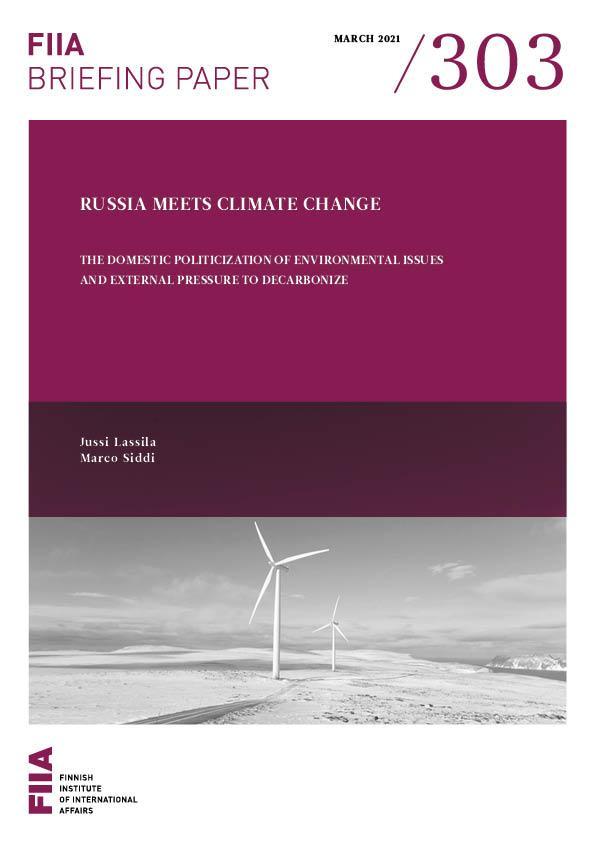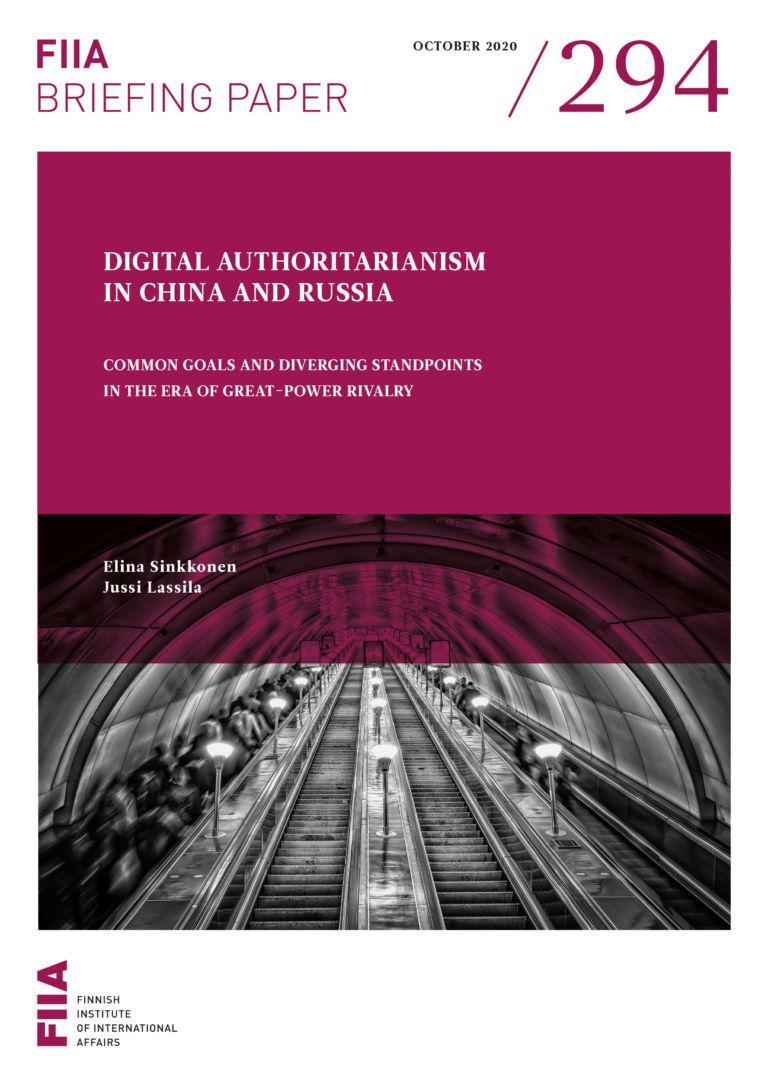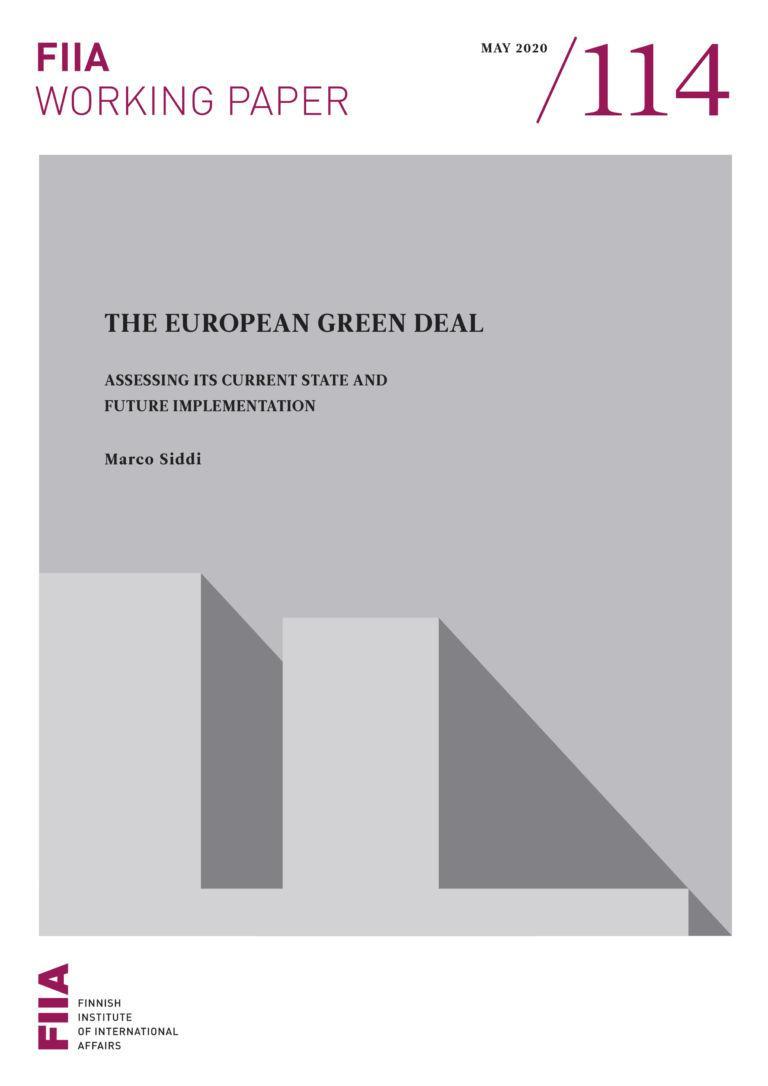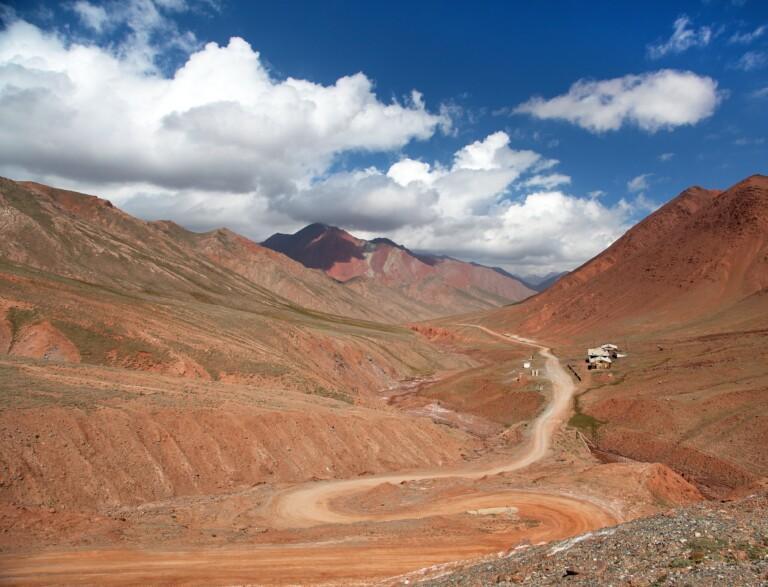
- Russia’s role in international climate policy is central. Russia is the fourth largest emitter of carbon dioxide and has vast potential for developing renewable energy. However, its fossil fuel-based economy and the legitimacy it creates for the Kremlin make climate action inherently difficult.
- Thanks to the growing politicization of environmental issues, the relevance of climate change may increase in the Russian public debate. The effects of climate change, such as melting permafrost and the Siberian forest fires, could catalyze this process.
- Climate-sceptical populism may sometimes feature in the rhetoric of the political elite, but its proliferation in society is unlikely. Most Russians are concerned about climate change, even if less so than Western Europeans. However, Russia’s decision-making on climate policy is highly centralized, with little or no input from civil society actors.
- The energy transition in Europe can eventually deprive Russia of its main market for fossil fuel exports, but it also creates new prospects for cooperation in green energy development.
Introduction
Russia is the world’s fourth largest emitter of carbon dioxide and, at the same time, one of the most important carbon sinks. Its role in global efforts to fight climate change is essential. At the same time, the country’s fossil fuel-based energy structure is in deep conflict with ambitious climate policy goals. Russia ratified the Paris climate agreement in 2019. It has reduced its greenhouse gas emissions by nearly 50% since 1990. However, this was largely the result of Russia’s economic collapse in the 1990s, the phase-out of part of the highly energy-intensive Soviet industry, and weak economic growth in the 2010s.
The Kremlin’s official statements have regularly pinpointed a link between a cleaner environment, emission reductions and economic modernization, but current policies are unambitious and even allow for an increase in future emissions. The country’s authoritarian development and deepening political conflict with the West may politicize and complicate cooperation in the fight against climate change.
While climate change plays a lesser role in Russian public debates than in Western Europe, Russian public opinion seems concerned about environmental issues. According to Levada and VTsIOM surveys, a clear majority of Russians believe that climate change is caused by human activities and has major negative implications for the country. The catastrophic Siberian forest fires of summer 2019 appear to have heightened these concerns[1]. Environmental issues have become politicized in recent years, especially with regard to the acute waste management problem in different Russian regions. Although ecological protests have occurred locally, they reflect wider dissatisfaction between parts of civil society and the government. Meanwhile, the Kremlin’s attitude towards environmental organizations has become more negative year after year, not least because it sees them as Western-backed actors opposed to its economic and political interests.
This Briefing Paper discusses the prospects of the politicization of climate change in Russia. It argues that, as revenues from fossil fuels have direct political and social implications for its legitimacy, the government continues to support the hydrocarbon economy. Some Russian narratives occasionally portray the idea of globally binding emission reductions as a conspiracy by Western countries against Russia. However, the latitude for climate-sceptical populism in Russia is limited. In fact, the attitude of Russians towards anthropogenic climate change is very similar to that in the rest of Europe, where its existence is increasingly accepted. The key difference is that perceptions of climate change as a major threat are not as widespread in Russia as in other European countries.
As a final step, the paper considers the implications of the energy transition in the European Union for developments in Russia. The EU, the largest market for Russia’s fossil fuel exports, has announced that it will pursue a “Green Deal”, including a zero net emission target by the year 2050. Although this means that Russia would lose an important source of export revenues, cooperation with the EU in the energy transition would also entail positive effects for the country – including modernizing the economy, alleviating its dependence on hydrocarbons, and developing clean energy technologies. Some Russian business and political actors understand the need to transition to a greener society, but vested interests in the hydrocarbon economy currently have the upper hand in the country’s politics.
Politicization of environmental problems in Russia
Over the course of Vladimir Putin’s rule, the state has made some efforts to solve various environmental problems. In many high-level political contexts, the Kremlin has highlighted the importance of caring about the environment and the need to move towards cleaner technology. In 2019, an extensive report by the Russian Ministry of Natural Resources and the Environment highlighted that Russia was warming twice as fast as the global average and that climate change would bring drought, epidemics and mass hunger to the country if left unaddressed.[2]
Russia’s financial investment in environmental protection has increased considerably since the beginning of the 21st century, although it has decreased in relation to GDP.[3] From the perspective of the political agenda, the government has clearly embraced the idea of a link between economic modernization and a cleaner environment. In this respect, there is a clear difference compared to the Soviet period, when the environment and natural resources were seen as fully subordinate to the economy.
The practical results of economic diversification and better consideration of ecology are still scarce. The legacy of the Soviet-era raw material-based industry, the intertwining of economic and political power, major economic benefits of hydrocarbons and the “resource curse” associated with it have relegated the modernization ambitions set out on numerous occasions to goals rather than measures implemented.
The clearest indication of the regime’s difficulties in resolving environmental problems is that ecological issues have become strongly politicized in recent years. Protests against poorly managed and ever-expanding landfills have become particularly acute, with the most recent examples being landfill protests in the Moscow and Arkhangelsk regions. It can be assumed that the links to the global climate agenda may also emerge when highlighting a number of local environmental problems. In other words, political action to highlight climate change will develop if it contributes to focusing attention on environmental problems that Russian citizens experience directly.
Climate protests, which have grown in popularity among young people in the West, have also been seen in Russia, albeit to a lesser extent (it should be noted that there was virtually no public discussion of climate change in Russia until ten to fifteen years ago). For example, although the landfill protests in the Arkhangelsk region were related to acute local environmental concerns, the politicization of the protests can be framed with global ecological activities. Demonstrations in Russia in support of Arkhangelsk landfill protesters took place at the same time as global environmental marches.[4]
The way in which authoritarian rule responds to social, including ecological, problems does not favour dialogue and a conciliatory solution. While it would be wrong to say that the government has ignored domestic environmental problems, it does not want to view them as political issues. This has been evidenced for some time by the Kremlin’s negative attitude towards the activities of environmental organizations in Russia, which the government sometimes portrays as anti-regime activities supported by Western actors. Their operating conditions have been narrowed by the branding of dozens of environmental NGOs as “foreign agents”, with Greenpeace being declared an “undesirable organization”.[5]
Against these developments, and in the context of growing political conflict, the Western-driven transition away from a fossil fuel-based economy towards a renewable energy-based economy may deepen the Russian leadership’s suspicions about global climate policy. Following Henderson and Mitrova, “the global rise in renewable energy source targets and the transition towards a decarbonized energy economy are regarded in Russia as a significant threat for export revenues and thus for Russian economic, and therefore political, security.”[6]
Prospects for climate denialism in Russia
The widespread internet penetration in Russia, as in the West, has increased awareness and understanding of climate change, but also made it possible to challenge and question it in a new way. Right-wing populism with a negative attitude towards the international climate agenda can potentially rise in Russia too. The Russian political leadership and those who align with it sometimes interpret the climate change agenda as a facet of Western policies to undermine Russia.[7]
For right-wing populists, it is common to take a stand that defends the “naturalness” and “normality” of the traditional (i.e. fossil-based) economic structure, relying on the alleged interests of a nation-state. Thus, right-wing populists inherently reject all international obligations that undermine this worldview. Global emission reductions are strongly criticized due to their alleged link to new environmental taxes and fears of job losses. Environmental protection or ecological thinking is not in itself exogenous to nationalist politics, yet any emphasis on states’ international obligations is in principle alien to right-wing populists’ understanding of national interests. In this respect, the positions of some European right-wing populist parties on climate are functional to Russia’s current hydrocarbon economy.
A distinctive feature of Russia’s power structures is the weak role of domestic political pressure and its lack of influence on the country’s climate policy. Russia does not have climate-oriented political or interest groups that are influential enough to shape the country’s stance on international climate policy. In Russia’s authoritarian system, the conditions for challenging the regime on issues such as climate are very limited. Moreover, despite the politicization of environmental issues and concerns about climate change starting to crop up in the public debate, citizens’ major grievances are related to issues of social justice.
The concentration of the population in areas where the negative effects of climate change are not as dramatic as in territories that are largely uninhabited is another challenge influencing Russia’s climate debate. However, this might be changing. Smoke from the huge and increasingly frequent forest fires in Siberia, as well as the material damage, are affecting an increasing number of citizens. The most rapid effects are seen in the melting of a permafrost area covering a vast part of the country’s land mass. The ecological disaster in Norilsk in the Russian Arctic – where the melting permafrost contributed to the collapse of a huge fuel tank that leaked into the water – served to provoke widespread debate and public concern. Yet, in this context, the authorities made a determined effort to counter the allegations that the accident was linked to the melting permafrost.[8]
Despite this posturing by the authorities, which is sometimes echoed even in parts of the scientific community, climate denialism is not a dominant feature in Russia. When it comes to citizens’ attitudes at large, views on climate change in Russia are very similar to those in other European countries insomuch as its existence and anthropogenic nature are widely acknowledged. The most significant difference concerns the weaker prioritization of global warming among other problems and threats.[9]
Russia and the European Green Deal
International developments in the area of climate and energy policy will inevitably influence Russia’s stance. Developments in the EU are particularly significant for Russia because the EU is currently a large consumer of fossil fuels and Russia’s main trade partner. In December 2019, the European Commission launched the European Green Deal, a comprehensive roadmap for policies that should promote the energy transition and lead to the EU’s climate neutrality (zero net GHG emissions) by 2050. This entails a drastic reduction in the EU’s consumption of fossil fuels, which will take place progressively over the next three decades.
The Green Deal will have two main implications for Russia. The first concerns Russia’s exports of fossil fuels, which account for almost two-thirds of its foreign earnings. While Russia is now increasing exports to Asia, Europe remains the largest purchaser of Russian oil, coal and gas. With the implementation of the Green Deal, European demand for Russian fossil fuels will progressively decrease. According to forecasts, this will initially affect coal demand, then oil and, after 2030, gas.[10]
The second (likely) main implication regards Russia’s energy-intensive exports (metals, chemicals, fertilizers). The EU is planning to introduce a carbon border adjustment mechanism, namely a tax related to the volume of emissions caused by the production of the imported goods. This can have a significant impact on the price of Russia’s metallurgical and chemical exports to Europe.
With the tax, the EU aims to both prevent the transfer of carbon-intensive production in countries with weaker environmental standards and induce other countries to adopt similar standards. However, the EU’s plan has sparked critical reactions from several trade partners, including Russian political and economic actors. Maxim Reshetnikov, Russia’s Minister of Economic Development, declared that Moscow “is extremely concerned by attempts to use the climate agenda to create new barriers”.[11]
The Russian president’s advisor on climate issues, Ruslan Edelgeriyev, has argued that Russia should introduce a domestic carbon pricing mechanism that would ensure that carbon fees are collected in Russia, rather than by the EU. However, the Russian Union of Industrialists and Entrepreneurs, a lobby group representing big business, opposes domestic carbon gas pricing. On the other hand, some Russian companies are trying to adapt to the changing circumstances. For instance, Rusal, one of the world’s largest aluminium producers, has begun investing in climate-neutral production, energy efficiency and green technologies.[12]
While current political tensions and reciprocal sanctions make the task very arduous, cooperation in the energy transition would be beneficial for both the EU and Russia. As the global economy will progressively decrease fossil fuel consumption, Russia needs to overcome its dependence on the hydrocarbon economy and avoid falling behind in the development of green technologies. Cooperation with European companies can be helpful in this regard.
The EU needs Russia on board as well for its climate policies to be successful at the global level. With its vast resources, Russia has considerable potential for the production of renewable energy and hydrogen with a minimum carbon footprint. Moreover, Russia can still considerably increase the energy efficiency of its economy. As Russia’s economy is less energy efficient than the EU’s, it would be cheaper to achieve considerable emission reductions in Russia. Through the creation of joint carbon market mechanisms, Russia would be able to attract European finance for low-carbon projects that contribute to the goals of the Paris agreement.
Russia’s current export specialization in hydrocarbons and energy-intensive goods is also a reflection of European demand, policies and investments over the last fifty years. As the EU and Russia jointly contributed to the climate crisis that the world is facing, joint solutions would also be necessary.
Conclusions
The Russian government has taken a negative attitude towards the activities of international environmental organizations in Russia. The occasional climate scepticism endorsed by the political leadership can be linked to Russia’s role as a hydrocarbon exporter in the global economy. It is not the result of a domestic public debate, as there has been no such pressure for the state to adopt this stance.
Nonetheless, the political leadership has tentatively acknowledged that the country will have to accept changes in the global economy due to the energy transition. For instance, Putin has acknowledged that oil consumption will decline in the future. While views like this reflect an understanding of upcoming developments, they do not entail a serious effort to move towards a hydrocarbon-free economy. The European Green Deal could have a significant impact in this respect, as Europe is the main destination for Russian hydrocarbon exports. At the same time, the Green Deal provides an opportunity to reframe EU-Russia energy relations along more sustainable practices.
Russia’s climate policy is currently dictated by the political and economic elite, whereas social movements and political parties do not yet play any significant role. However, environmental concerns are becoming more politicized. Although climate change does not play a prominent part in the broader discussion of environmental problems in Russia – which focuses for instance on waste treatment issues – the effects of global warming in Russia may change this. Climate change may become a more common reference when demanding solutions to environmental problems. On the downside, if the government does not take the issue of climate change more seriously, its growing politicization may also lead to the increased use of denialist and conspiratorial arguments in official narratives.
Endnotes
[1] Russian Analytical Digest 243, 11 December 2019, pp. 6-8, 12-14, https://css.ethz.ch/content/dam/ethz/special-interest/gess/cis/center-for-securities-studies/pdfs/RAD243.pdf.
[2] Charles Digges (2019) Russian government finally gives tepid backing to Paris Climate Accord, Bellona, 24 September, https://bellona.org/news/climate-change/2019-09-russian-government-finally-gives-tepid-backing-to-paris-climate-accord.
[3] Ellie Martus (2021) Policymaking and Policy Framing: Russian Environmental Politics under Putin, Europe-Asia Studies, DOI: 10.1080/09668136.2020.1865275
[4] ‘Sever. Dalee vezde’, Novaya Gazeta, 23 September 2019, https://novayagazeta.ru/articles/2019/09/23/82081-sever-dalee-vezde; ‘Municipal Solid Waste Management in Russia: Protest, Policy, and Politics’, Russian Analytical Digest 261, 23 December 2020.
[5] ‘Environmental Work Can Be Undesirable in Russia’, Human Rights Watch, January 14, 2021, https://www.hrw.org/news/2021/01/14/environmental-work-can-be-undesirable-russia.
[6] James Henderson and Tatiana Mitrova (2020) ‘Implications of the Global Energy Transition on Russia’, The Geopolitics of the Global Energy Transition, Lecture Notes in Energy 73, p. 100, https://doi.org/10.1007/978-3-030-39066-2_5.
[7] Marianna Poberezhskaya, ‘Talking about Climate Change in Russia’, Russian Analytical Digest 243, 11 December 2019; Veli-Pekka Tynkkynen & Nina Tynkkynen 2018, ‘Climate Denial Revisited: (Re)contextualising Russian Public Discourse on Climate Change during Putin 2.0’, Europe-Asia Studies, 70:7, 1103-1120, DOI: 10.1080/09668136.2018.1472218; Anna Korppoo (2020) ‘Domestic frames on Russia’s role in international climate diplomacy’, Climate Policy, 20:1, 106-123, DOI: 10.1080/14693062.2019.1693333.
[8] ‘Rostekhnadzor: tayaniye vechnoy merzloty ne moglo stat’ prichinoy avarii na TETS-3 v Noril’ske’, Novaya Gazeta, 10 November 2020, https://novayagazeta.ru/news/2020/11/10/165575-rostehnadzor-tayanie-vechnoy-merzloty-ne-moglo-stat-prichinoy-avarii-na-tets-3-v-norilske.
[9] ‘Environmental problems’, Levada Center, 18 December 2020, https://www.levada.ru/en/2020/02/18/environmental-problems/; Russian Analytical Digest 261, 23 December 2020.
[10] Makarov, I., Chen, H. and Paltsev, S. (2020) ‘Impacts of climate change policies worldwide on the Russian economy’, Climate Policy, 20, 10: 1242-1256; Siddi, M. (2020) ‘The European Green Deal: Assessing its Current State and Future Implementation’, FIIA Working Paper 114. May.
[11] Morgan, S. (2020) ‘Moscow cries foul over EU’s planned carbon border tax’, Euractiv, 27 July. https://www.euractiv.com/section/economy-jobs/news/moscow-cries-foul-over-eus-planned-carbon-border-tax/.
[12] Edelgeriyev, R. (2020) ‘Tsena na uglerod kak instrument ekonomicheskoy i ekologicheskoy politiki’, Kommersant, 11 July, https://www.kommersant.ru/doc/4377361; Paramanova, N. (2020) ‘Will EU Green Deal Force Russia to Clean Up Its Act?’, Carnegie, 13 July, https://carnegie.ru/commentary/82275; Martus, E. (2019) ‘Russian Industry Responses to Climate Change: The Case of the Metals and Mining Sector’, Climate Policy, 19, 1: 17-29.









